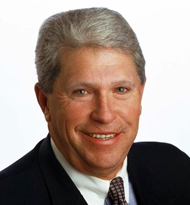
On Monday, the Industrial Relations Board ruled that the job action by close to 3,000 Canadian CN workers is a legal strike. Soon after that decision came down, the Conservative government began talking about legislating an end to the strike, citing complaints from a variety of businesses affected by the job action.
Federal back-to-work legislation has not been used since 1999; the NDP and Bloc Québécois have said they would vote against it, while Stéphane Dion remained non-committal about supporting such a measure. A Commons vote is expected Friday but the outcome remains uncertain given the internal divisions in the United Transportation Union's ranks, which has resulted in an ugly split in the midst of their job action.
Regardless of the outcome of the Commons vote, this has been no ordinary strike facing back-to-work legislation from a right-wing government. Behind the scenes, a bitter internecine battle within the union has pitted the American "international" section against its Canadian leadership, reminiscent to some of the cross-border disputes within the labour movement that led to the formation of the Canadian Auto Workers.
US owner, Canadian workforce
The CNR, the Canadian National Railway, is a corporate name with a pretty ironic ring to it these days. Privatized in the 1990s, the CN is today run by the Tennessee-born, Illinois-based rail tycoon E. Hunter Harrison. In 2005, including stock options, the CEO took home total compensation of more than $13 million.
Harrison was in Toronto on Feb. 8 to collect the Investor Relations (IR) Magazine award for best investor relations in the U.S. market. Only two days later, his employee relations problems resulted in a strike by 2,800 conductors and yard workers represented by the United Transportation Union (UTU).
Company spokespeople referred to the union demand of annual pay increases of 4.5, 4.5 and four per cent as "excessive." Union representatives countered that money was not the major issue in the dispute, citing concerns about conditions of work, including the demand for an increase in the current 20-minute lunch break.
CN has also been plagued by a poor safety record, with over 100 derailments reported in 2005 alone. On the same day the strike began, CTV's W5 broadcast an exposé of the company's safety practices entitled "Off the Rails." A publicly funded safety audit carried out by Transport Canada on CN has yet to be released due to the company's objections.
Solidarity hits the border
But the American CEO is not the only one upset about the almost two-week strike being carried out by the company's conductors -- members of the United Transportation Union -- that has impacted business from the Port of Vancouver on out across the country. In fact, UTU International President Paul Thompson and headquarters in Cleveland Ohio declared the strike by the Canadian section in violation of the union's constitution.
Representatives of the UTU argued alongside the company in trying to get the strike declared illegal at the Canada Industrial Relations Board, and Thompson has this week suspended the four Canadian general chairmen and appointed new chief negotiators for the strike.
"They were removed from office, and suspended from UTU membership, for violating the constitution of the union," UTU spokesperson Frank Wilner told TheTyee. "They violated the constitution on two grounds. One was engaging in an unauthorized strike, and the second was negotiating a merger or affiliation with another union," Wilner added.
"It is pure fabrication," ousted UTU general chairman and chief media spokesperson Rex Beatty countered, telling The Tyee that it was in fact UTU International that first explored merging with another union without allowing Canadian members to have a say in the matter. "Under Canadian law, the board certainly never would have allowed that," Beatty said.
"They [The International UTU] will probably fulfil their own prophesy simply because they took such an aggressive move in an attempt to side with the CN to have the strike declared illegal. There is a groundswell to address, so whether that's returning to the UTU or to seek representation with another union -- that's probably more likely now than ever."
Some rank-and-file UTU members told The Tyee that this was a simple case of American union bosses selling out their Canadian members, alleging that union president Thompson and CEO Harrison had an overly friendly relationship.
The UTU's Wilner took umbrage at this suggestion. "They know each other. There are many ways to describe friends," Wilner told The Tyee. "If the allegation is that somehow they are in bed together, that's absolutely outrageous."
Returning to work?
It appears that one way or another CN trains will soon be back running with their regular conductors and yard workers, but the results of this labour dispute or what the next round might bring remains to be seen.
Rex Beatty and his fellow deposed general chairmen are now urging striking UTU members to return to work, in part because they want to avoid seeing back-to-work legislation imposed.
As of Wednesday, Feb. 21, the company found itself in the unusual position of denouncing a wholesale return of its workforce. In a statement, Harrison asserted, "CN remains in negotiations with the official representatives of the certified bargaining agent for the UTU -- not Mr. Beatty -- to reach an agreement to end this strike."
The Conservative government's legislation to end the CN strike is expected to be voted on Friday, Feb. 23.
Related Tyee stories:














Tyee Commenting Guidelines
Comments that violate guidelines risk being deleted, and violations may result in a temporary or permanent user ban. Maintain the spirit of good conversation to stay in the discussion.
*Please note The Tyee is not a forum for spreading misinformation about COVID-19, denying its existence or minimizing its risk to public health.
Do:
Do not: